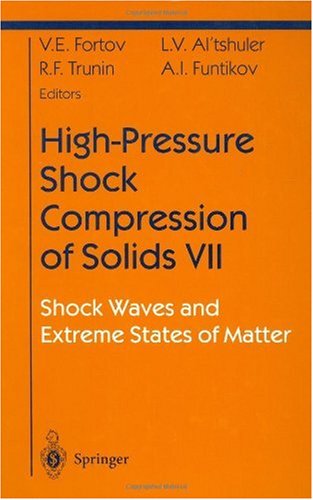

Most ebook files are in PDF format, so you can easily read them using various software such as Foxit Reader or directly on the Google Chrome browser.
Some ebook files are released by publishers in other formats such as .awz, .mobi, .epub, .fb2, etc. You may need to install specific software to read these formats on mobile/PC, such as Calibre.
Please read the tutorial at this link: https://ebookbell.com/faq
We offer FREE conversion to the popular formats you request; however, this may take some time. Therefore, right after payment, please email us, and we will try to provide the service as quickly as possible.
For some exceptional file formats or broken links (if any), please refrain from opening any disputes. Instead, email us first, and we will try to assist within a maximum of 6 hours.
EbookBell Team

4.4
92 reviewsPresenting some of the most recent results of Russian research into shock compression, as well as historical overviews of the Russian research programs into shock compression, this volume will provide Western researchers with many novel ideas and points of view. The chapters in this volume are written by leading Russian specialists various fields of high-pressure physics and form accounts of the main researches on the behavior of matter under shock-wave interaction. The experimental portions contain results of studies of shock compression of metals to high and ultra-high pressure, shock initiation of polymorphic transformations, strength, fracture and fragmentation under shock compression, and detonation of condensed explosives. There are also chapters on theoretical investigations of shock-wave compression and plasma states in regimes of high-pressure and high- temperature. The topics of the book are of interest to scientists and engineers concerned with questions of material behavior under impulsive loading and to the equation of state of matter. Application is to questions of high-speed impact, inner composition of planets, verification of model representations of material behavior under extreme 1oading conditions, syntheses of new materials, development of new technologies for material processing, etc. Russian research differs from much of the Western work in that it has traditionally been wider-ranging and more directed to extremes of response than to precise characterization of specific materials and effects. Western scientists could expect to benefit from the perspective gained from close knowledge of the Russian work.